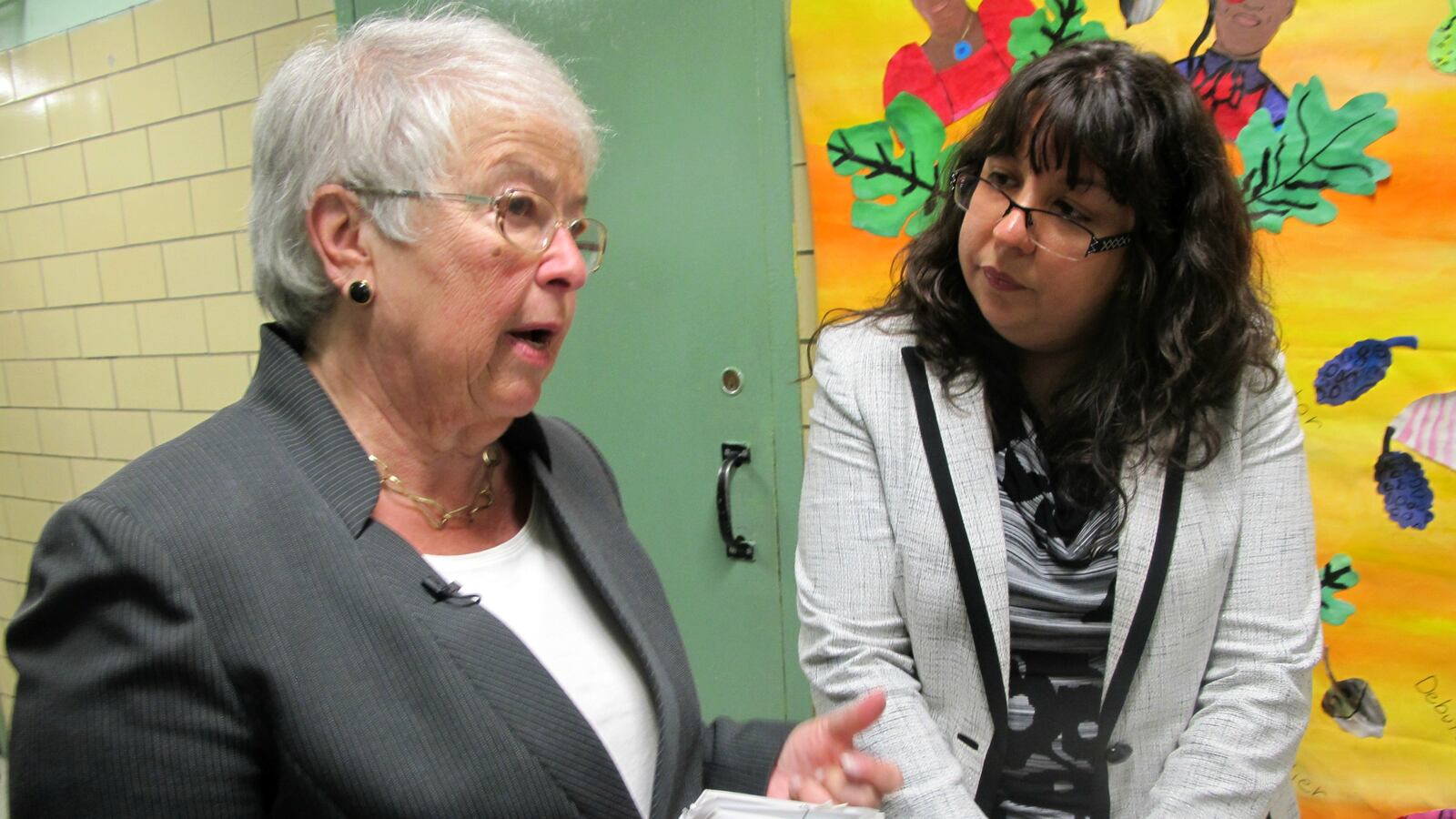Chancellor Carmen Fariña is no fan of the state’s new requirement that teachers be observed by outsiders, in part because it could be expensive, she said Thursday.
Starting next year, each of the city’s 74,000 teachers must be observed and evaluated at least once by someone who doesn’t work at their school, according to the new state evaluation law. The city could hire education consultants or public university professors, though principals or teachers from other schools, or coaches who already work for the city, could perform those evaluations as well.
None of the options are appealing, Fariña said at Manhattan’s P.S. 178 in her first comments since lawmakers approved a state budget that included the new evaluation law this week.
“Anyone who comes from the outside, to some degree, is going to cost us money,” Fariña said, though she didn’t offer more detail. Money used for the evaluators could otherwise have paid teachers for other priorities, like expanding dual-language programs, she said, adding that the city doesn’t need “someone to tell us what we already know.”
“We have made a major emphasis this year on professional development,” she said.
The role of the “impartial independent trained evaluator” was added to the evaluation law in response to concerns that principals were giving their teachers inflated scores. Last year, New York City teachers were four times more likely to receive a highly effective rating on their observations than on two other student performance measures, according to state data — something some principals have said is appropriate given the volatile nature of the state testing portion, among other reasons.
Fariña’s criticism of the evaluation proposal offered by Gov. Andrew Cuomo, which included the independent evaluators, began weeks before the budget deal was completed. In a radio interview last week, Fariña called the presence of independent observers “another way to privatize education.”
Many details of the evaluation system still must be worked out by state officials, including how the observation and testing results will be calculated and how much the outside evaluators’ input will play into a final rating. Fariña said Thursday that she hoped the city would have a say as the state education department develops those policies, which must be approved by the Board of Regents by the end of June.
“I want to be clear: We hope to be at the table at some point to be able to influence the influence-makers,” Fariña said.
Stay up to date with what’s happening in New York City schools and education policy with our daily newsletter. Sign up here

